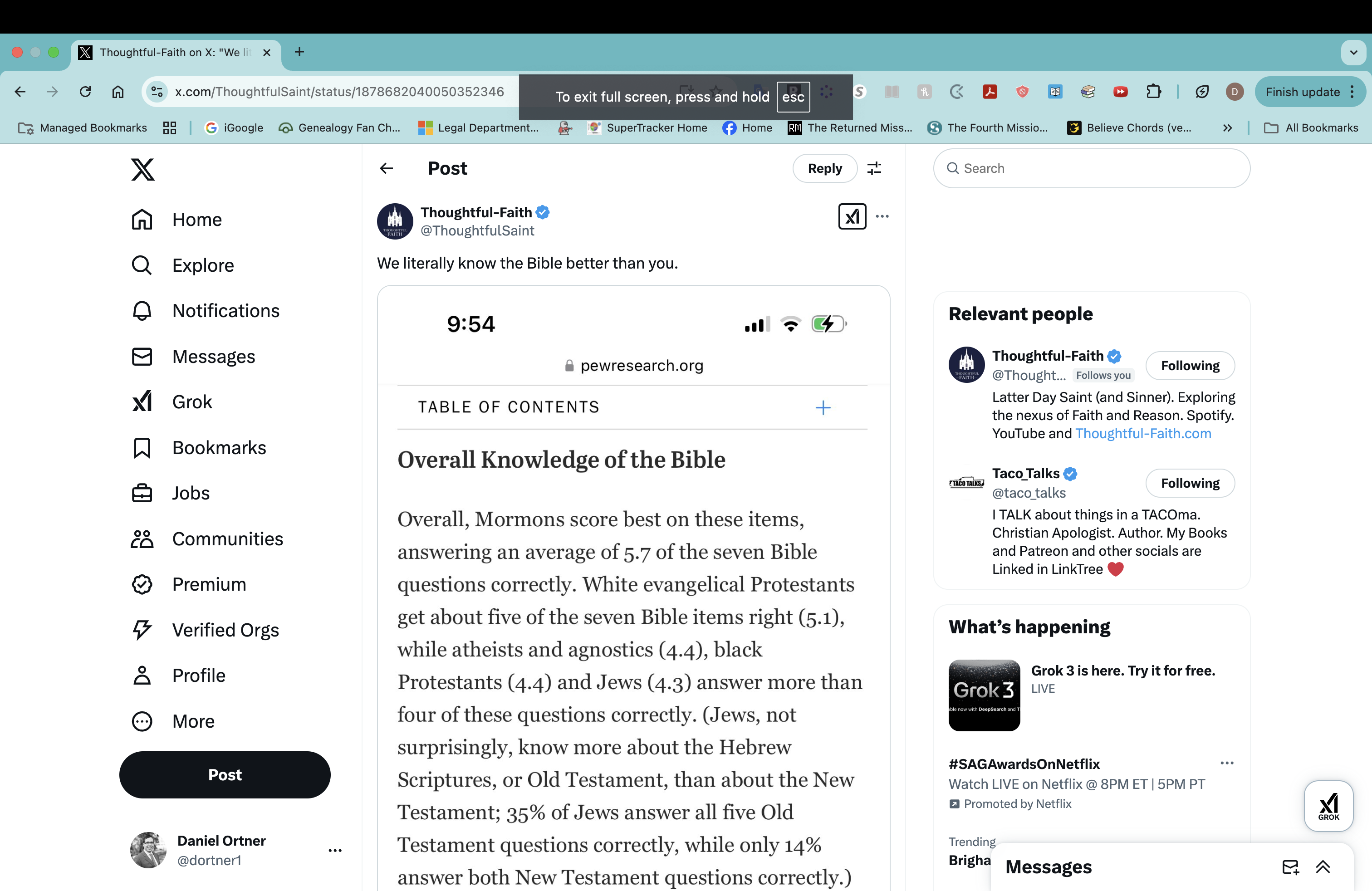One trope that I have heard Latter-day Saints make with surprising frequency on social media is that members of The Church of Jesus Christ of Latter-day Saints know the Bible better than their Evangelical interlocutors. Here is a recent example of this from LDS apologist Jacob Hansen.

Apologists like Hansen make these sweeping claims based on a single Pew survey that does not prove what they claim it proves. This survey says little about the depth of Bible knowledge among various groups at anything other than the most superficial level. LDS apologists conveniently ignore a more recent Pew survey, which actually shows Evangelicals outperforming Mormons by a slightly larger margin.
Let’s dive in.
The 2010 Pew Research Survey data does show Mormons averaging 7.9 out of 12 Bible/Christianity questions, topping Evangelicals at 7.3. This edge appears to be statistically significant given the decent sample sizes (224 Mormons and 869 white Evangelicals). But this .6 difference is the difference of a literally half of a single question, a razor thin margin.
On the other hand, the 2019 Pew Research Survey’s data shows the opposite: Evangelicals hit 9.3 out of 14, Mormons 8.5—a 0.8 gap the other way. This edge also appears to be statistically significant given the even larger sample size. (2,320 Evangelicals and 432 Mormons).
So does that mean that Mormons became less biblically literate since 2010. That seems very unlikely.
The truth is that these are very small differences and much of it likely comes down to the specific questions that the survey asked or to minor changes in methodology (such as one year not offering a “don’t know” option and the other year offering one). With such a tight margin, a single question touching on a topic that is more familiar to Latter-day Saints (such as a question about the temple), or one of that is more familiar to Evangelicals (such as a question about the friendship of David and Jonathan) could shift these results.
So what conclusions can we draw form all of this?
- Its suspicious and disingenuous that apologists like Jacob Hansen regularly draw attention to the 2010 survey and completely ignore the 2019 survey.
- These differences are very slight. The shifts between 2010 and 2019 highlight how small these differences are, reinforcing the need for caution before making sweeping conclusions based on inconclusive data. Some might argue that both surveys still show Mormons scoring relatively well. However, the reversal in rankings between 2010 and 2019 suggests that these results are highly sensitive to survey methodology rather than reflecting true differences in biblical knowledge.”
- Most important of all. Even taken at face value, these results cannot prove that Mormons or Evangelicals actually know the Bible better. These multiple choice survey questions focus on Bible facts like where Jesus was born. That isn’t “knowing the Bible” in any deep sense. These surveys cannot measure depth of exegesis, compare spiritual insights, or show the impact that the word of God has on these individual’s lives. And I think we can all agree that these deeper and more difficult to quantify metrics are more important than a quiz score.
Ultimately, while these surveys provide some interesting data, they do not prove greater biblical knowledge among Mormons or Evangelicals. More importantly, knowing Bible facts isn’t the same as truly understanding or living out its message.

